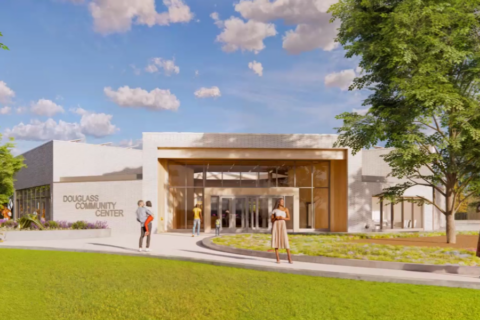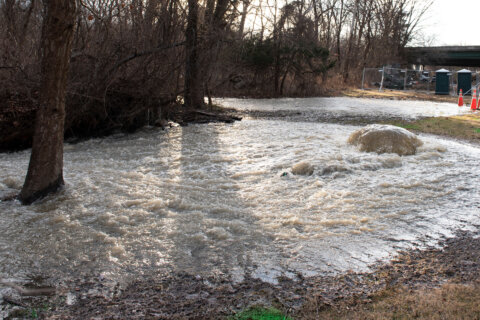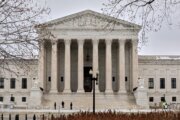The projected benefits of a new Washington Commanders stadium being built in D.C., which were detailed in a report the city released last week, are largely honest and reasonable, according to a University of Maryland economist who reviewed it.
The city report, which analyzed the economic and community impact of professional sports across D.C., included an estimate of revenue a new NFL stadium and surrounding hotels and restaurants could bring to the city.
Broadly, it projected hosting an NFL franchise would bring thousands of jobs to the city and result in $1.26 billion in revenue every year.
“They’re saying that they’re only going to get an incremental $26 million a year in revenue,” said Michael Faulkender, a professor of finance at the University of Maryland. “That number seemed reasonable, when you think about sales taxes and some incremental income taxes from District residents that may be working.”
The city report estimates that most of the people who attend events at a new NFL stadium would be coming from outside D.C. That premise, Faulkender said, is “one of the most intellectually honest things about the report.”
And so, “it really is incremental money,” he said.
“The activity that you would get that is brought back into the District, that’s currently being done in Maryland, I thought were reasonable numbers,” Faulkender said.
While project advocates usually put out reports such as the one D.C. commissioned, Faulkender deemed the D.C. report more credible than the one touting the potential benefits of an entertainment district in Virginia’s Potomac Yard neighborhood earlier this year.
That report, he said, was “assuming that a bunch of people would move to Virginia, who wouldn’t otherwise live in Virginia, and I found that to be a lot less credible.”
D.C.’s report also identifies possible consequences of a stadium project, such as congestion and other traffic challenges.
It considers the impact that additional activity at surrounding restaurants and hotels could have on the area, which Faulkender said is viable, because people from Maryland or Virginia attending an event “might choose to make a night of it and stay in a hotel, whereas right now, you would not do that in Landover.”
The location of a potential new stadium, Faulkender said, plays a role in such revenue projections.
“Will people hang around? Or will they scatter immediately afterwards?” he said. “That’s, to me, the biggest question about how much beyond just the economic activity of the venue you would incorporate into the analysis.”
In its report, D.C. didn’t disclose how a new stadium would be paid for. Faulkender, meanwhile, said such reports are typically used “to justify whether taxpayer dollars should go toward either some kind of tax abatements or some kind of direct cost-sharing on the construction of the facility.”
Get breaking news and daily headlines delivered to your email inbox by signing up here.
© 2024 WTOP. All Rights Reserved. This website is not intended for users located within the European Economic Area.








